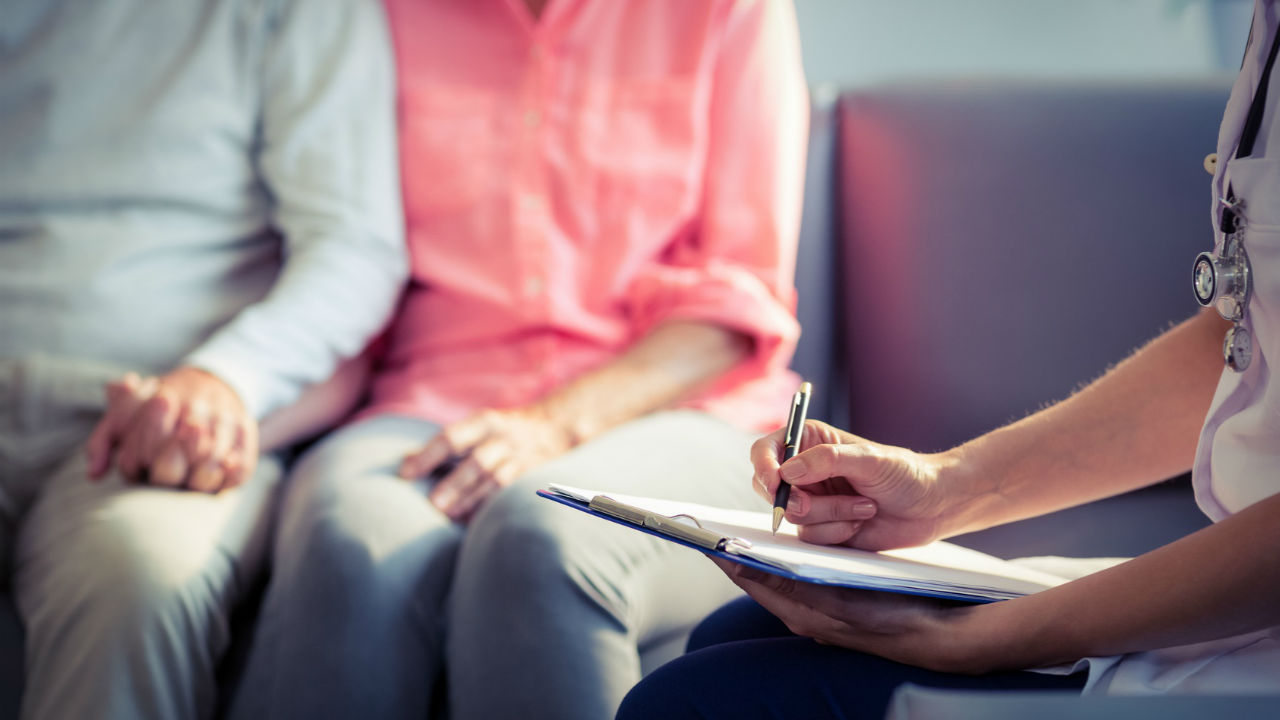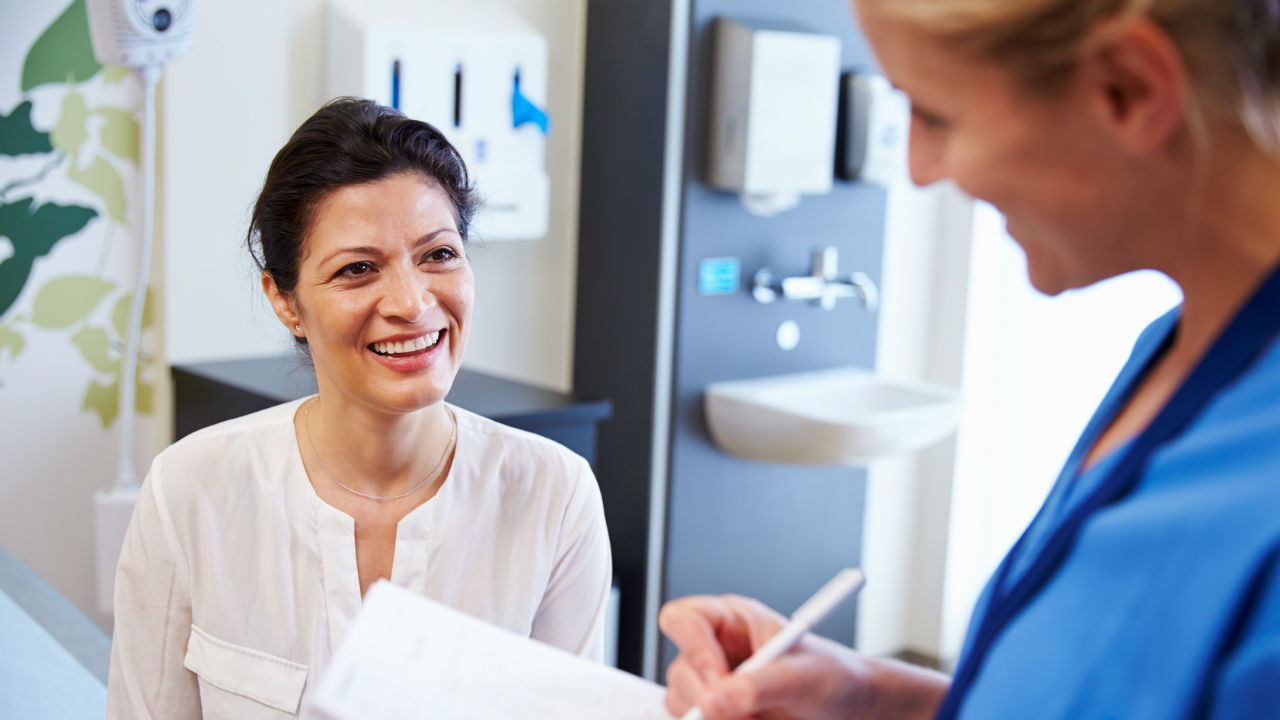It is something commonly referred to as “the change” and can be a frightening concept for some women, usually because menopausal symptoms vary from woman to woman in duration and in intensity. It is a common myth that all women suffer, but it is impossible to predict the onset and severity of symptoms. For many women, I think it’s safe to say, menopause remains a mystery in many respects. So let’s take a closer look.
What causes Menopause?
Menopause is a natural part of a woman’s aging process. It can happen anytime between age 42 and 56. The term menopause is used to refer to the entire transition from what some call “perimenopause”, when a woman first begins to experience menopausal symptoms, to up to a few years following the actual cessation of the menstrual period. A woman is considered to have entered menopause when she has gone without a menstrual period for 12 months.
A woman is born with a finite number of eggs and towards the late thirties the ovaries make less estrogen and progesterone, which regulate menstruation. “[F]ewer potential eggs are ripening in your ovaries each month, and ovulation is less predictable ... the post-ovulation surge in progesterone – the hormone that prepares your body for pregnancy – becomes less dramatic. Your fertility declines ...” (Mayoclinic.com).
Menopause can also happen because of a full hysterectomy, chemotherapy and radiation therapy, and primary ovarian insufficiency, which results in menopause before the age of 40 in about 1 percent of women.
In natural menopause, “[p]erimenopause typically begins several years before menopause, when the ovaries gradually produce less estrogen ... [and] lasts up until ... the point when the ovaries stop releasing eggs. Menopause [as we’ve already seen] is the point when it’s been a year since a woman has had her last menstrual period ... Postmenopause ... are the years after menopause ... menopausal symptoms, such as hot flashes, ease for most women.” (WebMD)
Symptoms of Menopause
Again, not every woman will experience the same types of menopausal symptoms, at the same time or for the same duration or the same intensity as other women. Symptoms of menopause include:
• Irregular periods
• Decreased fertility
• Vaginal dryness
• Hot flashes
• Insomnia
• Night sweats
• Joint pain
• Fatigue
• Short-term memory problems
• Mood swings
• Increased abdominal fat
• Thinning hair
• Loss of breast fullness
• Itchy skin
• Dry eyes
• Urinary tract infections
Preparing and Coping with Menopause
Here are some tips for preparing for menopause from the Canadian Women’s Health Network:
• Learn about menopause through books, article and other materials
• Talk to friends and relatives who have already gone through menopause
• Join a menopause or midlife support group
• Maintain a nutritious, well-balanced diet and exercise regularly
• Learn how to manage stress and balance work and social aspects of life
• Talk to your family doctor about any personal health concerns
• Remember you have choices and it is your right to take charge of your health
Coping with menopause involves the above ideas as well as (from MayoClinic.com):
• Dress in layers and try to pinpoint what causes hot flashes, including hot beverages, spicy food, alcohol, warm weather or a warm room.
• Use over-the-counter water-based vaginal lubricants or moisturizers, and stay sexually active.
• To optimize sleep, avoid caffeine and plan exercise during the day, not just before bed.
• Relaxation techniques such as deep breathing and progressive muscle relaxation can help relieve menopausal symptoms.
• Strengthen your pelvic floor with Kegel exercises to improve some forms of urinary incontinence.
• Stop smoking. “Smoking increases your risk of heart disease, stroke, osteoporosis, cancer and a range of other health problems. It may also increase hot flashes and bring on earlier menopause.”
• At least 30 minutes of physical activity on most days will “protect against cardiovascular disease, diabetes, osteoporosis and other conditions associated with aging.”
Hormone Replacement and Alternative Treatments for Menopause
Medical treatment for menopause focuses on alleviating the symptoms. Hormone replacement therapy is the most effective and still the most common treatment option for relieving hot flashes.
Low-dose antidepressants, Neurontin, Clonidine, bisphosphonates, selective estrogen receptor modulators (SERMs), or vaginal estrogen have all been shown to be effective in lessening the effects of the symptoms or after-effects of the menopause and the lower levels of estrogen and progesterone that the body produces.
Some women are able to manage their menopause symptoms through the use of phytoestrogens (estrogens that naturally occur in certain foods; see my article “Soy Protein and PMS Symptoms” https://www.empowher.com/emotional-health/content/soy-protein-and-pms-symptoms for the skinny on whether or not drinking gallons of soy milk actually helps or not), vitamin E, black cohosh, yoga, dong quai, licorice, chasteberry, evening primrose oil and wild yam.
However, there is no scientific evidence that any of these natural sources actually safely or effectively reliefs menopause symptoms. In fact, taking more than 400 international units of Vitamin E supplements daily may not be safe.
Before engaging in any treatment, talk to your doctor first. Certain herbal remedies or supplements can interfere with the effectiveness of medications or may interact unsafely with medications you may be taking.
Sources:
Menopause. Canadian Women’s Health Network. Web. Oct 27, 2011. http://www.cwhn.ca/node/40801
Menopause. MayoClinic.com. Web. Oct 27, 2011. http://www.mayoclinic.com/health/menopause/DS00119
Menopause Basics. WebMD. Web. Oct 27, 2011. http://www.webmd.com/menopause/guide/menopause-basics
Reviewed October 28, 2011
by Michele Blacksberg RN
Edited by Jody Smith





Add a CommentComments
There are no comments yet. Be the first one and get the conversation started!